The Week in Review August 10-14
Click here for a roundup of the week's main stories.

Newsroom, 15.08.2015, 13:57
Romania is wrestling with the effects of a prolonged drought
The harsh drought that hit Romania this summer has taken its toll on both the crops and the naval traffic on the Romanian sector of the Danube. According to representatives of the farmers, the excessive heat and the lack of rainfalls in the past two months have wreaked havoc on 900 thousand hectares of farmland, compromising more than a quarter of the grain crops this year. The cultures of corn, soy, wheat, rape, sunflower as well as fruit and vegetables are bearing the brunt of the heavy drought. Farmers have forecast over two billion euros in losses, a sum that could rise if temperatures remain high and there is no rain. Romanias irrigation system, which has been destroyed almost 90%, is in sore need of restoration, being now able to irrigate only 300 thousand hectares as compared to 1989, when it covered a surface of 3.3 million hectares. The Ministry of Agriculture say it needs one billion euros to have a nationwide functional irrigation system and hopes to do it by means of European funds. On August 17th representatives of Romanias main agricultural producers are to convene at the Ministry of Agriculture to assess the drought impact over the crops and come up with measures to diminish the damage.
The drought has equally affected naval circulation on the Danube, whose low discharge has prompted the authorities to restrict circulation on the Romanian sector of the river. Ships must drastically reduce speed particularly in the dangerous areas. Bottlenecks on some areas have caused significant delays in the traffic, while in the Danube Delta scores of canals have dried up and hundreds of fish died due to the low water level and high temperatures. Unfortunately the situation is not going to improve soon and hydrologists have forecast that water levels will continue to go down in the next week as well.
Annual inflation has hit a new all-time low
Annual inflation in Romania was kept at minus 1.7% in July and reached an all-time low in the past 25 years, data published by the National Statistics Institute (the INS) have revealed. Consumption, the real engine of Romanias economic growth, was boosted by the low prices in food produce in July, when prices went down by 1.17% as against the previous month and with 7.25% as compared to July last year. Prices in non-food products went up in July as compared to June by 0.48% and 1.26% as compared to July 2014. The INS data have revealed significant price-cuts in medicine and medical items, while gas prices saw a significant increase. Services fees went up in July as well by 0.09% as compared to June and 2.20% as against the similar month of last year.
Talks on the new Fiscal Code and a new salary law in the public sector
Romanian Prime Minister Victor Ponta has reiterated that the fiscal relaxation measures stipulated in the new Fiscal Code are sustainable and the impact of their enforcement can be offset by both the economic growth and a more effective tax collection. The Romanian Prime Minister went on to say that unless the new Code gets Parliament approval, public sector employees will not benefit from a new salary law. In his opinion, the present dispute over the new Code is purely political. Ponta has thus responded the criticism against the sustainability of fiscal relaxation measures from the president, from the Central Bank governor and from representatives of Romanias international lenders, such as the IMF and the World Bank. They pointed out that the implementation of such measures could trigger serious macroeconomic imbalances. The new Fiscal Code, which president Klaus Iohannis sent back to Parliament for reanalysis on July 17th, will be re-discussed in a special Parliament session later this month. Before this session, Parliamentary parties accepted, following heated debates, to hold talks on the new Code.
A surprising announcement from Romanias Royal House
King Mihai has withdrawn the title of Prince of Romania with the style of ‘Royal Highness from his grandson Nicolae removing him from the line of succession, sources with the royal family announced in Bucharest on Monday. The former Romanian sovereign had bestowed upon Nicolae these titles back in 2010. In a communiqué Nicolae said he acknowledged the kings decision explaining that the positions he held imposed on him a way of life, which he described as difficult to accept. Nicolae, 30, was the third in line to the crown, after princess Margareta and Princess Elena (his mother). Forced by the communists to abdicate in 1947 king Mihai, 93, left Romania and settled in Switzerland. He returned to Romania after the anti-communist revolution of 1989.
European funds for refugees and securing Romanias borders
The European Commission has this week approved 2.4 billion euros for the period between 2014 – 2020 to help 19 countries, Romania included, to secure their borders and improve their capabilities of receiving refugees. The main beneficiaries of this project are Italy and Greece, countries, which since the beginning of this year have been facing an inflow of asylum-seekers particularly from Middle East and Africa. Roughly 100 million euros have been earmarked for Romania. The European countries facing most of this migration wave have asked that the other Union members may share the burden. The European Commission has again appealed to all member states to accept the redistribution of the refugees. According to the latest report by the UN Refugee Agency over 224 thousand immigrants have made it to Europe via the Mediterranean since the beginning of the year.





























